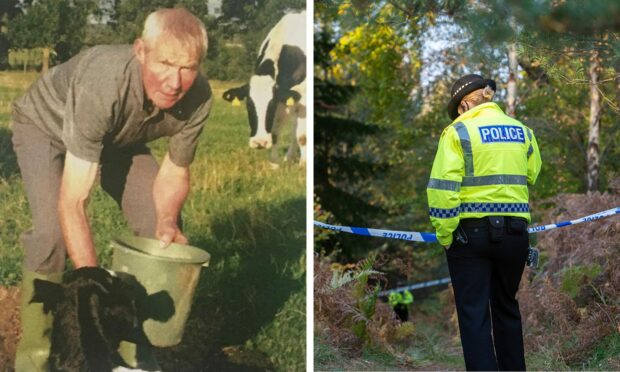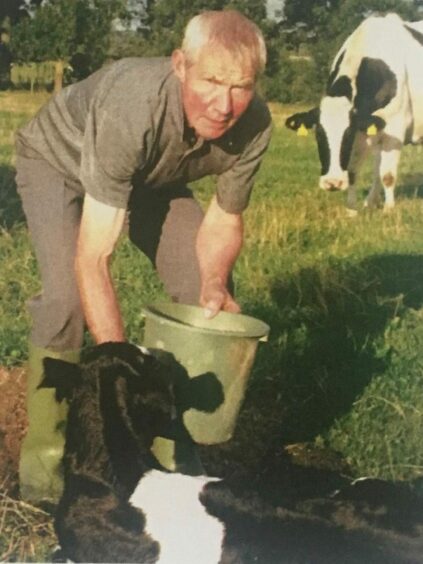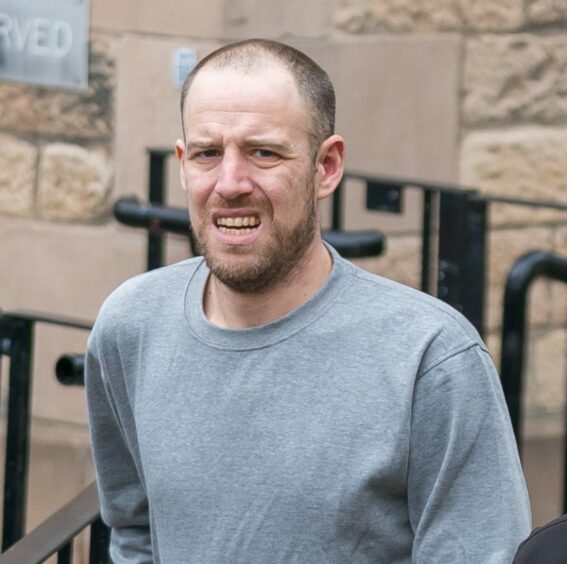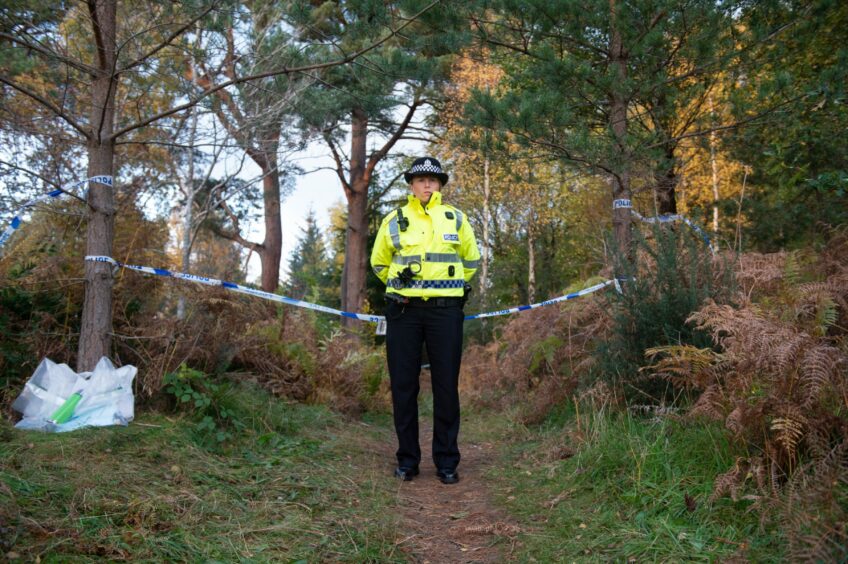The family of an 83-year-old great-grandfather who was killed by a psychotic man say an inquiry into his death has failed to bring them the “sense of closure they had hoped for”.
David Johnstone was suffering from a severe psychotic disorder when he killed pensioner Frank Kinnis and attacked two others in October 2019 – around four months after he met a GP regarding his increasingly unusual behaviour.
A three-day fatal accident inquiry was held at Elgin Sheriff Court last month to examine the healthcare that Mr Johnstone received in the weeks and months before the tragedy.
In her ruling, published today, Sheriff Olga Pasportnikov said she does not consider that there is anything that could have been done by the doctors which could have realistically prevented Mr Kinnis’s death.
She said his death occurred after the “most unfortunate combination of unpredictable circumstances”.
Reacting to the findings, the pensioner’s family told The Press and Journal they felt let down by the healthcare system.
They said: “While we are grateful to those who have been involved we want to express our disappointment at the outcome of the inquiry.
“Although we have no dispute with the stated findings, we believe that it overlooked areas which to us seemed of greater concern.
“It has also not given us the sense of closure we had hoped for.”
The inquiry heard evidence about how medics may have placed an “inappropriate onus” on Mr Johnstone to “essentially self-medicate” his own mental health care.
Witnesses explained how Mr Johnstone felt his life changed three years before the incident when “his life and mind sped up faster than light and he struggled to keep up”.
After his family raised concerns about his mental health he was visited by his GP and agreed to engage with psychiatric services.
But four months on – and after he failed to respond to a letter to attend a professional mental health assessment – he went on to kill Mr Kinnis and attack two others.
One expert witness explained that though Mr Johnstone did not meet the criteria for being detained under the Mental Health Act, the 36-year-old may have been too unwell to comprehend the seriousness of his condition.
Consultant psychiatrist for NHS Tayside Dr Gary Stevenson said people with symptoms like Mr Johnstone’s might have “a detachment from reality that means they may not accept they have any mental health issues and are therefore unlikely to respond to any offers of help”.
In her findings, Sheriff Pasportnikov made no recommendations in terms of improvements to the system. Nor did she highlight other reasonable precautions which could have been put in place to prevent Mr Kinnis’s death or others in the future.
She said she could not comment on the Crown’s concerns about people failing to attend urgent referral psychiatric appointments, stating: “It is not a case of ‘one size fits all’.”
She wrote: “Mental health care has to be a patient-centred approach; if a blanket approach to the treatment of those suffering from mental health issues were to be taken, there would be the fear of going back to the days of large psychiatric institutions.
“The untimely death of Frank Yule Kinnis was a horribly tragic event arising from
a most unfortunate combination of unpredictable circumstances.”
Family’s questions about killer’s healthcare
Mr Kinnis’s family said Mr Johnstone’s mental health condition was so severe that the healthcare systems should have taken more control of the situation and also kept his relatives informed.
They said: “We do not understand how someone going through mental health issues can be expected by our healthcare system to take proactive steps to seek help when their condition could be as severe as David Johnstone’s was.
“We do not understand how the families and loved ones who may raise concerns cannot be kept informed of what steps have been taken to support their care, particularly if they have been unsuccessful and no further action would be taken unless further instances of ill health or deterioration are reported.
“We do not understand how a healthcare system can sit on a list of potentially highly vulnerable people who have not been able to engage seemly indefinitely, without review or scrutiny or due process to revisit or return.”
“As a family, we feel that everyone involved in this tragic incident has been let down by our healthcare system and that it was not proactive enough in trying to reach David Johnstone to treat the illness that he was suffering from,” they added.
“It was easier to simply leave his case in limbo and leave him to manage his illness alone. The consequences of this were tragic.”
“It is our position that the findings of this report have not adequately addressed what we believe are the core underlying issue within the system.
“Despite our disappointment, we can only hope that healthcare professionals are paying attention and will actively take the necessary steps to ensure that similar tragedies can be prevented in the future.”
Cleared on medical grounds
Mr Johnstone was charged with murdering Mr Kinnis at Linkwood Farm, Barmuckity, Elgin. He was also charged with attempting to murder Morris and Janette Smith, both 70, on the same day at Birkenhill Woods, Elgin.
Mr Johnstone was acquitted of murdering the pensioner in July 2020 after pleading not guilty on the grounds of a mental disorder that meant he was unable to appreciate the nature or wrongfulness of his actions.
The Crown accepted that plea and in October a judge ruled that Mr Johnstone be detained at the State Hospital at Carstairs for an “unlimited” period of time in order to protect the public.
Family’s thanks to friends, police and media
The family added: “Nothing prepares you for seeing the face of a loved one across the news. It does not get less jarring or less upsetting. It never stops feeling unreal.
“Privately dealing with the trauma and the horror of his death and the loss to our family has made the last three years incredibly hard.
“We are grateful to all those who have helped us navigate it all, including the family liaison team and the procurator fiscal team. We also thank the media outlets which covered this tragedy thoughtfully and respected our family’s privacy when asked.”
NHS Grampian has been approached for comment.
For all the latest court cases in Elgin, as well as crime and breaking incidents, join our new Facebook group.



